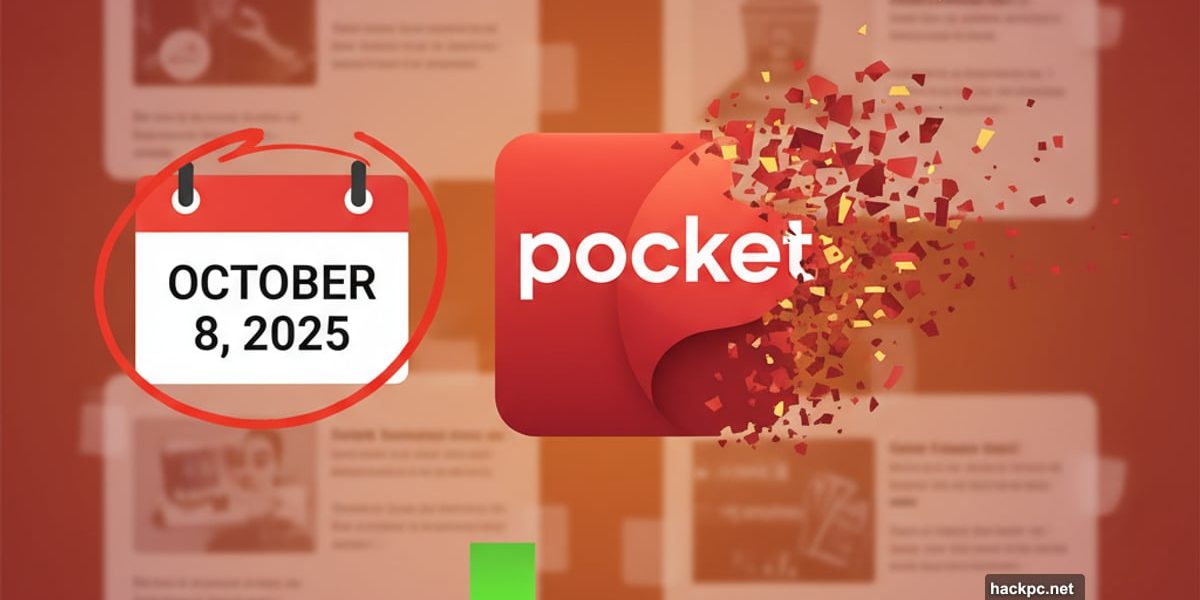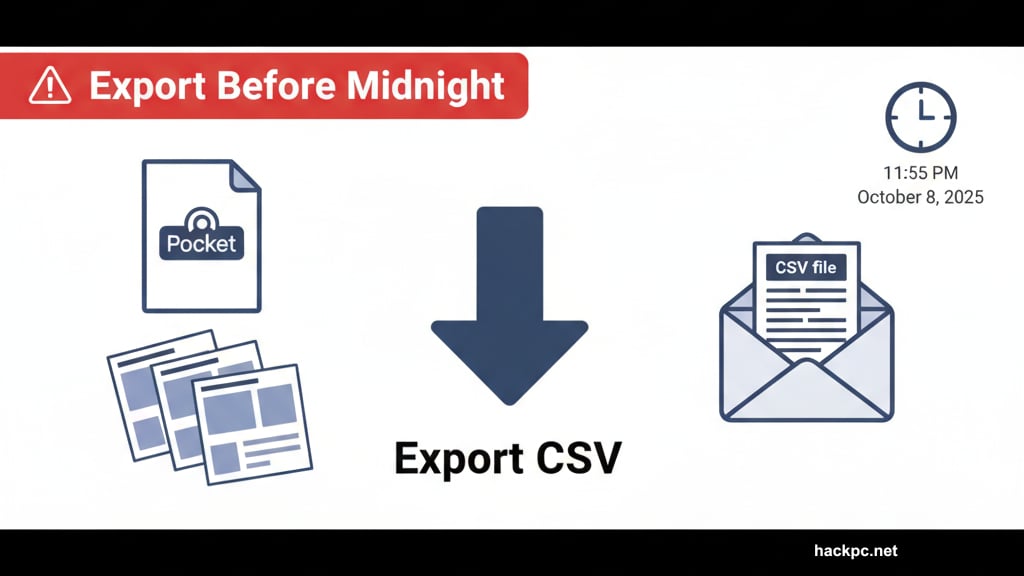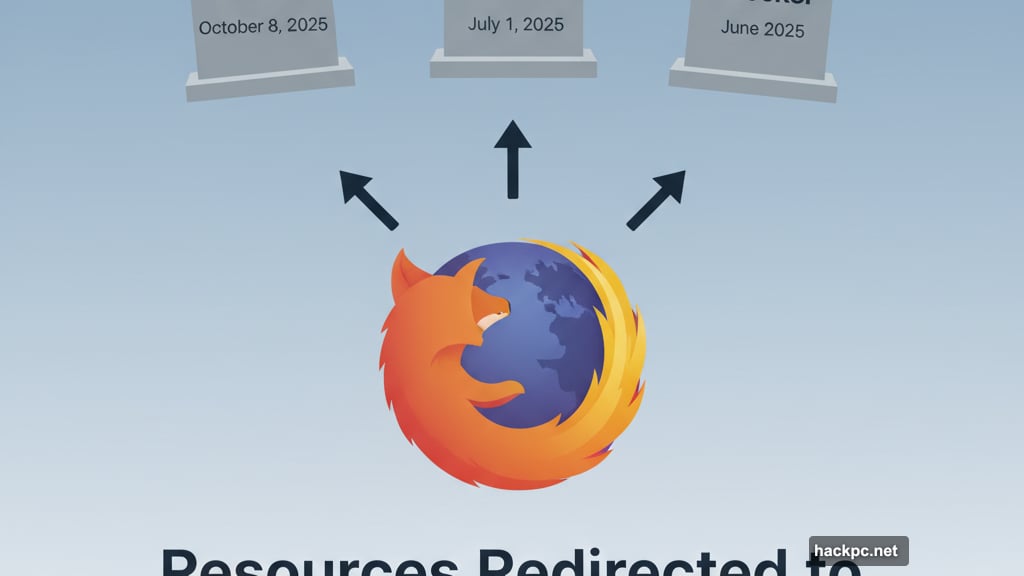
Mozilla just pulled the plug on Pocket. If you haven’t exported your saved articles yet, you’ve got hours left before everything disappears.
The popular read-it-later app officially shuts down on, October 8, 2025. That means all your saved articles, highlights, and tags vanish permanently. Plus, there’s no coming back from this.
Let’s talk about what you need to do right now.
Save Your Data Before Midnight
You can still export your Pocket data, but the window closes fast. The process takes about a minute if you act now.
Head to Pocket’s Export page and sign into your account. Then click the ‘Export CSV file’ button. You’ll see a confirmation that your export is processing. Mozilla warns it might take up to seven days to arrive.
However, that seven-day window only works if you request the export before the shutdown completes today. So don’t wait until later. Do it now.
The export arrives as a CSV file via email. That file contains all your saved articles, tags, and other data. You can then import it into whatever alternative app you choose.
Mozilla Focused on Firefox Instead
Mozilla made this call back in May 2025. The company said it wanted to channel resources back into Firefox development.

In their blog post, Mozilla explained that “the way people save and consume content on the web has evolved.” They believe their resources serve users better when focused on core browser features rather than standalone apps.
Fair enough. But that doesn’t make losing Pocket any less painful for longtime users.
The shutdown affects more than just Pocket. Mozilla also killed Fakespot on July 1, 2025. Plus, the Review Checker feature built into Firefox stopped working back in June.
What Made Pocket Special
Most browsers offer bookmarking. Chrome has it. Firefox has it. Safari has it. But Pocket worked differently.
Instead of just saving links, Pocket reformatted articles into a clean, readable style. The app stripped away ads, pop-ups, and cluttered layouts. So you got pure content in a consistent format across every article.
Moreover, Pocket offered powerful organization tools. You could add tags, create collections, and highlight important passages. The app also suggested related articles based on your reading habits.
That suggestion feature was brilliant. It exposed users to fascinating stories they’d never have found otherwise. No other read-it-later app matched that discovery experience.
Three Solid Alternatives
Losing Pocket stings, but several alternatives fill the gap nicely. Here are three worth considering.
Instapaper remains the most straightforward replacement. It saves articles from anywhere on the web and displays them in a simple format. Plus, it can read articles aloud if you want to listen while driving or working out.

The app handles basic organization through folders and tags. It’s not fancy, but it works reliably. Many former Pocket users have already made the switch.
Readwise Reader takes a broader approach. Besides web articles, it handles RSS feeds, X threads, PDFs, newsletters, and YouTube videos. The app integrates with Readwise’s powerful highlighting system.
Reader’s design looks gorgeous. Clean typography and thoughtful spacing make long reading sessions comfortable. However, it costs $7.99 monthly after a free trial.
Raindrop bills itself as a bookmark manager rather than a read-it-later app. That means it organizes almost anything you find online, not just articles.
The app automatically backs up files and web pages you save. So even if the original source disappears, you can still access your saved content. Raindrop also works well for teams who need to share collections.
Pick Your Replacement Fast
You don’t have time to test every option carefully. Just pick one and start using it today.
Export your Pocket data first. Then sign up for Instapaper, Readwise Reader, or Raindrop. Most alternatives let you import that CSV file to restore your saved articles.
None of these perfectly replace Pocket’s article discovery feature. But they’ll preserve your reading workflow and keep your saved content accessible. That’s what matters most right now.
Stop reading this and export your data. Seriously. The clock’s ticking and your articles won’t save themselves.



Comments (0)